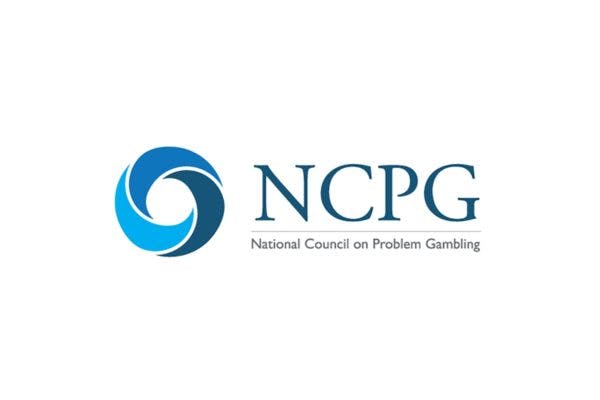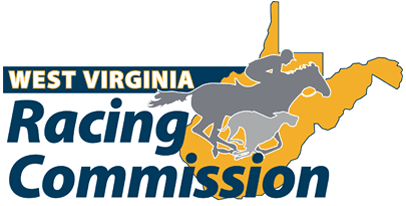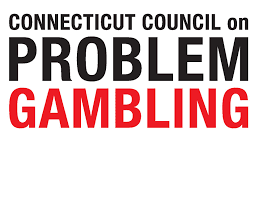Online Gambling and Sports Betting in the US
Gambling 101: Where to Start, How to Start and What You Need to Know
Gambling 101
Learn the ins and outs of legal online gambling, including the legal regulations that govern the industry.
Read moreOnline Gambling in the US
Learn more about the current state of online gambling in the United States. Discover where gambling is legal and states considering action on online gambling.
Read moreLegal Gambling Age
Stay informed on the legal gambling age in your state, and understand the laws and regulations surrounding gambling.
Read moreGambling Software
Discover what you need to enjoy a safe, immersive, fun, dynamic, and secure gaming experience.
Read moreUS Casino Gaming Impact
With online casinos becoming more popular each year, it's important to understand the gambling laws of the United States. The US legal system offers different types of regulation across state, city, and federal levels.
US Gambling Sites
Depending on the online casino’s location, online gambling may be legal, illegal or somewhere in between. For example, online casinos in NJ are heavily regulated by the New Jersey Division of Gaming Enforcement, while permissible gambling activity in Michigan falls under the oversight of the Michigan Gaming Control Board.
On the other hand, as of 2022, online casinos are not allowed to operate in states such as Hawaii, Texas, Mississippi and Utah.
Additionally, some U.S states such as Arizona, Colorado, Iowa, and Louisiana don’t allow online casinos but do allow online sports betting, horse racing and fantasy sports.
Licensed Casinos and Offshore Casinos
Licensed casinos are permitted by the US states to offer gambling services within their territory. Different regulatory bodies for different states license and regulate gambling activities. For instance, the Michigan Gaming Control Board is responsible for licensing and regulating online casinos in Michigan.
Another example of a state regulatory body is California Gambling Control Commission which regulates gambling establishments, third-party providers, and tribal casinos. The body also regulates all persons and transactions relating to the ownership interest of gambling establishments.
In contrast, an offshore casino is a casino located and operating outside of US borders and laws. These casinos allow players to access popular casino games like poker, blackjack, roulette, and slots from anywhere in the US. Wild Casino, Las Atlantis, Bovada, and My Bookie are a few examples of offshore casinos accessible in the US.
Legalized Gambling by State
U.S States that allow Online Gambling, Casino Games and Sports Betting
New Jersey
New Jersey houses one of the largest concentrations of licensed online casinos in the US. There are over two dozen online casinos and poker sites in the state. Casino activity is regulated by the Division of Gaming Enforcement (DGE).
Read morePennsylvania
Pennsylvania offers online gambling services via over 20 online casino sites. Online poker is also legal. The Pennsylvania Gaming Control Board regulates all gambling activities in the state.
Read moreMichigan
Offering over ten online casino sites, Michigan was the fifth U.S. state to legalize online poker in 2021. PokerStars MI was the first legal online poker site in the state. Other brands like BetMGM Poker and WSOP followed.
Read moreWest Virginia
West Virginia was one of the first states to approve online casino gambling. Today, the Mountain state offers more than four licensed online casino sites, including top brands like Caesars and BetMGM.
Read moreDelaware
Online gambling is legal in Delaware. Licensed online casinos provide access to a wide range of online casino games, including slots, poker, blackjack, and more. Players must be residents and of legal age in order to participate online.
Read moreConnecticut
Online gambling is legal in Connecticut. Residents have the option to bet online at online casinos, which provide a variety in sports betting, online slots, and casino games. Connecticut online gambling falls under the jurisdiction of the Connecticut Gaming Division.
Read moreReal Money Games in the US
Real-money online casino games are legal in many parts of the US, including Connecticut, Delaware, Michigan, New Jersey, Pennsylvania, and West Virginia. There is no set minimum deposit for real money games in the USA. For many casinos, the minimum deposit can be as low as $5. However, it is usually between the $5-$10 range. To place wagers, players must meet the legal age requirement and be physically situated in a location where real money gambling is legal.
Playing Live Dealer Games
Live dealer games are online games that are played with genuine, live croupiers as opposed to a computer. They offer a convenient alternative to visiting a physical casino. Instead of playing against a computer, gamers have virtual dealer deals cards that they see on theirr screens.
The minimum age requirement for playing live games in most states is 21 years. Some examples of licensed casinos that offer real money or live dealer games in the US include FanDuel Casino, Golden Nugget Casino, BetMGM Casino, DraftKings Casino, Ocean Casino, Caesars Casino, and BetRivers Casino. Others include Borgata Casino, Hollywood Casino, and PokerStars Casino. Although U.S. residents can also play live dealer casino games on unlicensed platforms, this may come with risks. Gamers who gamble for real money at unlicensed or unregulated live casinos risk exposing their personal and financial data.
Online Sports Betting in the US
Is Online Sports Betting Legal in the US?
In 2018, the US Supreme Court made the decision to strike out a 1992 Federal Law that banned sports betting. Prior to this, gamers in the US made use of offshore wagering operations or illicit bookies. That has changed.
Following the court's decision, multiple US states that have proceeded to make avenues for safe sports betting. This also includes online sports betting. As of 2023, there are now 36 states in the US that allow sports betting. FanDuel, BetMGM, Caesars, WynnBET, BetRivers, and DraftKings are examples of sportsbooks available in many states across the US. American citizens can also bet on major leagues such as the National Football League (NFL), National Basketball Association (NBA), Major League Baseball (MLB), and the National Hockey League (NHL).
Fantasy Sports Betting in the US
Fantasy sports betting is available in almost all states in the US. Many major leagues are available for fantasy sports betting, including the National Football League (NFL), National Basketball Association (NBA), Major League Baseball (MLB), and the National Hockey League (NHL).
In 2006, the US government passed the Unlawful Internet Gambling Enforcement Act to restrict internet gambling and protect consumers. However, fantasy sports leagues are exempt from this regulation.
Fantasy sports leagues are not considered online betting since they are regarded as a game of skill, not chance, under federal law. This permits fantasy sports betting but prohibits wagering on a specific match or player.
Online Sports Betting and Fantasy Sports in the US
What you Need to Know
Sports Betting
Sports betting online is a great way to add some excitement to your favorite sports games. It gives you the chance to take advantage of the big moments and have an active role in the action.
Read moreFantasy Sports
Fantasy sports provide an online platform for players to assemble their own teams of professional athletes from a variety of sports. Gamers get to compete against fellow players.
Read moreUS Professional Sports
What is the Legal Age for gambling in the US?
The legal age for gambling in the US varies from state to state. It is usually between the ages of 18 and 21. For instance, while the legal age for gambling in Colorado is 21, it is 18 in Minnesota. Other states that have an age requirement of 18 include Alaska, Arizona, Maryland, Minnesota, New Jersey, New York, and so on. Regarding tribal casinos, they are allowed to set the age limit they deem fit. For example, while commercial casinos will have an age requirement of 21, tribal casinos may have one as low as 18.
Learn the Language
Your Guide to Online Casino and Sports Betting Terms
Sports Betting
From point spread to parlay. Learn the most common terms used in online sports betting in the US.
Read moreSlots
What's in a name? Learn more about the terms and language used when playing online slots.
Read morePoker
Get your lingo on with some of the commonly used words and phrases for all levels of online poker players.
Read moreWhat is Responsible Gaming?
Responsible gaming refers to the set of social responsibility initiatives launched by the gambling industry, governments, regulators, operators, and vendors. These initiatives aim to ensure the integrity and fairness of their operations and raise awareness of the effects of gambling. These effects include things such as gambling addiction or clinical depression. To achieve the objectives set out in these initiatives, gambling platforms have begun to offer features such as self-exclusion programs and wager-time limits.
A self-exclusion program, as the name implies, is where you agree to exclude yourself from gambling and the gambling platform needs to take the necessary steps to stop you. While a wager-time limit is a limit on how much you can bet on a single game or event. For instance, a bookie may set a $50 limit on a particular event such as horse racing.
Gambling platforms also have a part to play in promoting responsible gaming and they can do so by:
- Creating and upholding ethical accounting processes and procedures.
- Conducting games in a fair manner.
- Upholding dependable record-keeping procedures.
- Submitting recurring reports to gambling regulatory bodies.
- Upholding strict adherence to all applicable laws, rules, and minimal internal controls related to gaming.







